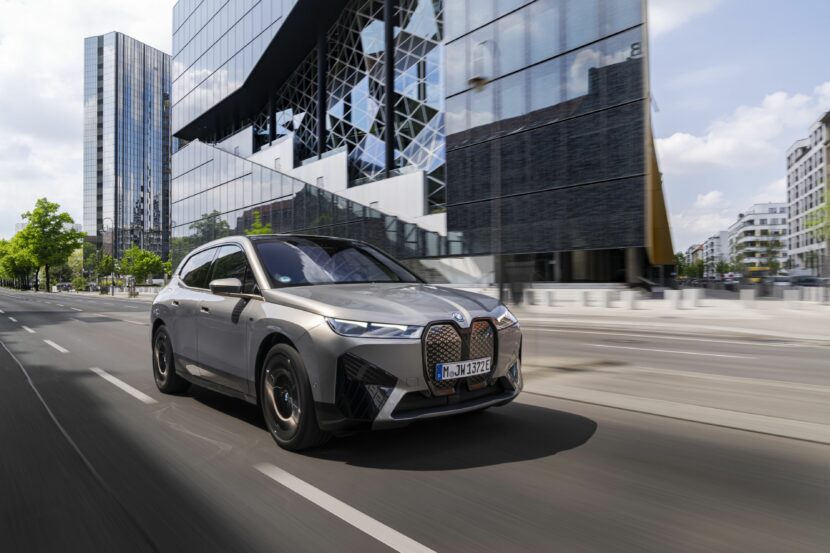Although the BMW iX isn’t necessarily about straight-line acceleration, it’s interesting to see the level of performance you’re getting by spending extra on the M60. German YouTube channel B&K lined up the electric M Performance SUV against the midlevel xDrive50 to discover how much quicker the M60 is for the €36,000 premium it commands in its domestic market.
The onboard measurement device shows the iX xDrive50 took 4.41 seconds to complete the 0 to 62 mph (100 km/h) run and 12.50 seconds to cover 400 meters. As for its more potent cousin, the sprint took 3.82 seconds and the quarter mile was completed after 11.93 seconds.
There was a huge gap in the 0 to 124 mph (200 km/h) run as the regular version needed 28.97 seconds whereas the M Performance model did it in only 14.04 seconds. The same holds true for the 62 to 124 mph (100 to 200 km/h) test, with the iX xDrive50 taking 24.41 seconds compared to the iX M60’s 10.22 seconds.

Lest we forget that in markets outside of the United States, BMW has an entry-level iX xDrive40 variant. It was originally supposed to come to the US, but the automaker has had a change of heart. This base version is quoted as having a 0 to 62 mph (100 km/h) sprint in 6.1 seconds, thus making it much slower than the iX xDrive50 (4.6 seconds) and the iX M60 (3.8 seconds). The M Performance variant is electronically capped at 155 mph (250 km/h) while the other two are limited to 124 mph (200 km/h).
In Germany, the xDrive40 undercuts the xDrive50 by €22,800 and the M60 by €58,800. Settling for the base model means you get a smaller lithium-ion battery pack with a usable capacity of 71 kWh while the other two have a 105.2-kWh pack.
It’ll be interesting to see how the forthcoming XM will stack up against the iX M60 considering it is going to be over 100 kilograms (220 pounds) heavier. The plug-in hybrid V8 SUV will do the sprint to 62 mph (100 km/h) in 4.3 seconds for the standard model and even quicker for the Label Red coming in 2023.
Source: B&K / YouTube




































































